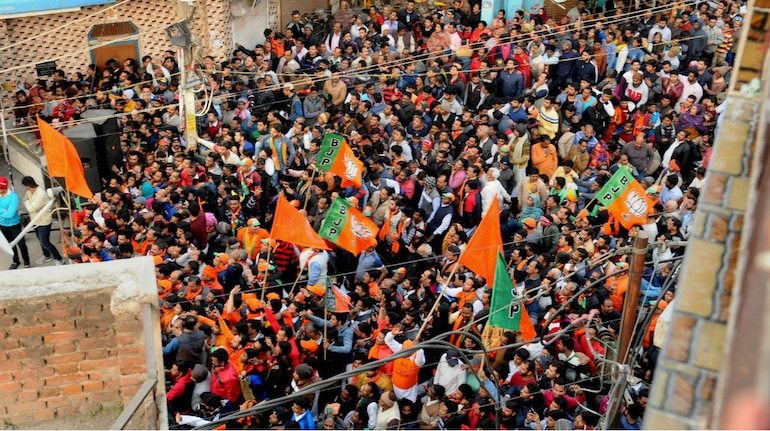Exploring the Role of Ideologies in Shaping Policies and Governance
Lucknow – Uttar Pradesh, India’s most politically significant state, continues to witness the influence of philosophical debates on its governance and electoral strategies. With its diverse population of over 16 crore voters and deep-rooted cultural and social dynamics, political ideologies like Ambedkarite social justice, Gandhian grassroots empowerment, and religious philosophies are shaping policies and public discourse.
As parties prepare for upcoming elections, the intersection of these ideologies with governance raises questions about whether they are driving meaningful change or fueling polarizing narratives.
Key Metrics Highlighting Political Dynamics
- Voter Base: Uttar Pradesh has over 16 crore registered voters, representing a wide array of caste, religious, and economic backgrounds (Election Commission of India, 2023).
- Caste Composition: The population includes 22% Scheduled Castes, 40% Other Backward Classes (OBCs), and 19% Muslims, making caste and community-based politics central to the state (Census 2011).
- Economic Disparity: Urban-rural income disparities remain high, with rural per capita income nearly 60% lower than urban areas (State Economic Survey, 2023).
Philosophical Ideologies Driving Governance and Campaigns
1. Ambedkarite Social Justice
Dr. B.R. Ambedkar’s vision of caste equity and empowerment continues to dominate political narratives, particularly among Dalit and OBC communities.
- Policy Impact: Reservation in education and employment is a key election promise for parties like the Samajwadi Party (SP) and Bahujan Samaj Party (BSP).
- Criticism: Experts argue that while reservation policies address historic injustices, they often overshadow broader economic and developmental agendas.
2. Gandhian Grassroots Empowerment
Mahatma Gandhi’s emphasis on self-reliance and local governance resonates in state initiatives aimed at strengthening rural democracy.
- Reflection: Programs promoting panchayati raj institutions and rural skill development align with these principles but face challenges in implementation.
3. Religious Philosophies and Identity Politics
Religious ideologies have become a central theme in electoral campaigns, influencing narratives around temple construction and communal harmony.
- Example: The Ram Mandir in Ayodhya has been positioned as a symbol of cultural resurgence, while opposition parties call for secular governance and interfaith unity.
Government Programs Reflecting Philosophical Ideals
- Sabka Saath, Sabka Vikas
- Aimed at inclusive development, the initiative aligns with Gandhian ideals but faces criticism for unequal implementation across regions.
- Education Reforms
- Inclusion of Ambedkarite and Gandhian philosophies in school curricula seeks to educate students on equality and ethical governance.
- Local Governance Strengthening
- Efforts to empower gram panchayats reflect Gandhian principles but require better infrastructure and funding.
Challenges in Philosophical Politics
- Caste-Based Divisions: Over-reliance on caste narratives risks deepening social divides and detracting from inclusive development.
- Religious Polarization: Increasing alignment of political parties with religious ideologies raises concerns about the erosion of secular governance.
- Youth Disengagement: Philosophical debates often fail to resonate with young voters, who prioritize economic opportunities and quality education over ideological rhetoric.
Public Reaction and Ground Sentiments
Voters across Uttar Pradesh are divided on whether philosophical ideologies are driving meaningful change or merely fueling political agendas. Rural areas often see greater alignment with Gandhian ideals of self-reliance, while urban voters express frustration with caste and religion dominating political discourse.
Local activists and academics emphasize the need for political parties to focus on tangible outcomes such as job creation, education access, and healthcare improvement rather than rhetorical promises.
Outlook: Balancing Ideologies and Action
The political future of Uttar Pradesh is deeply tied to its philosophical roots, but translating these into actionable governance remains a challenge. Voters are increasingly demanding accountability and inclusivity, signaling that success in elections will depend on the ability of political parties to balance ideology with development.
As the state gears up for its next electoral cycle, the interplay between philosophical ideals and practical governance will define the direction of Uttar Pradesh’s political landscape.


Leave a Reply